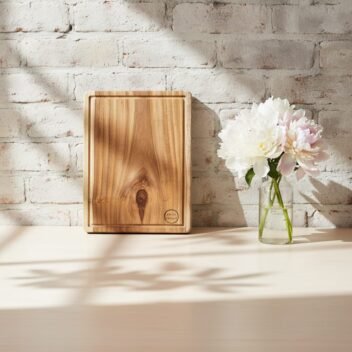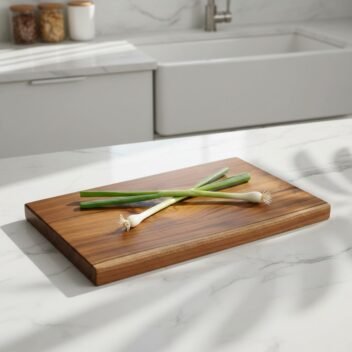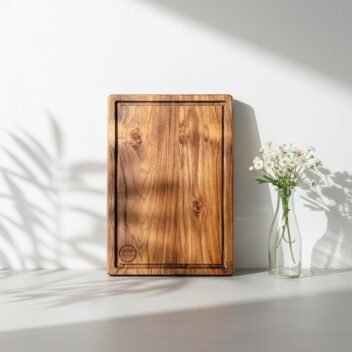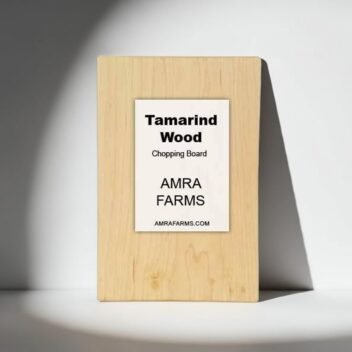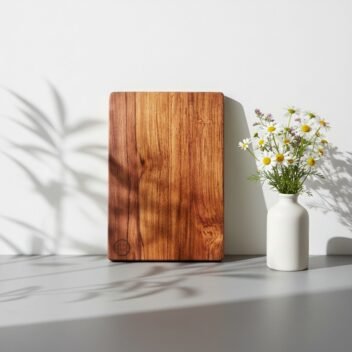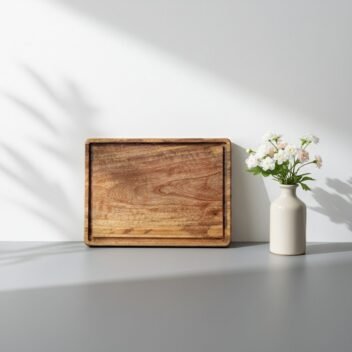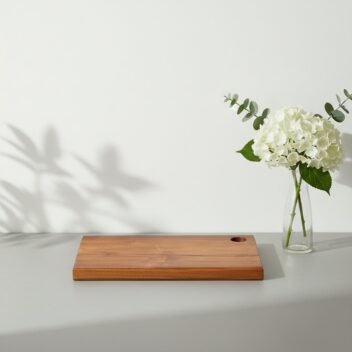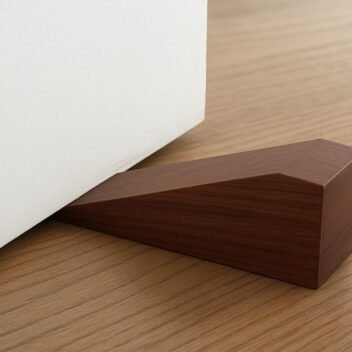Best Selling Chopping boards
Single Block Teak Wood Chopping Board – Rectangular Edge Grain Cutting Board
Price range: ₹999.00 through ₹4,499.00Premium Single Block Teak Wood Chopping Board Small
Original price was: ₹1,999.00.₹998.00Current price is: ₹998.00.Large Teak wood Meat Chopping Board
Price range: ₹1,499.00 through ₹4,499.00Premium Single Block PuliMutti -Tamarind Wood Chopping Board – P101
Price range: ₹999.00 through ₹1,499.00Amra Farms Tamarind Wood Butcher Block : Single Block Cutting Board
Price range: ₹799.00 through ₹1,499.00Thin Blank Teak Wood Vegetable Cutting Board
Price range: ₹1,499.00 through ₹4,999.00Amra Farms Premium Single Block Mango Wood Chopping Board – Rectangular
Original price was: ₹2,499.00.₹2,248.10Current price is: ₹2,248.10.Single Block Neem Wood Chopping Board
Original price was: ₹1,999.00.₹1,798.10Current price is: ₹1,798.10.Teak Wood Wedge Door Stopper – Handcrafted Elegance for Everyday Use
Original price was: ₹989.01.₹889.11Current price is: ₹889.11.
Commercial kitchen equipment is chosen for its food safety and operational efficiency, but when it comes to chopping boards, they are required to have a few more factors which affect the choice. For instance, knife maintenance, easy to clean, sanitary benefits, and more. Steel chopping boards in professional kitchens have their own set of advantages, but are they genuinely becoming the new standard or are they just a passing trend?
Why Are Stainless Steel Chopping Boards Gaining Attention in Commercial Kitchens?
Several sources highlight the popularity of stainless steel chopping boards in commercial and industrial kitchens. These boards are promoted as the preferred cutting surface for meat processing zones and high hygienic environments.
Hygiene and Food Safety: The Top Reason for Switching
The biggest problem with industrial kitchens is the bacteria build-up on chopping boards. Industrial kitchens are always on the lookout for hygienic chopping board solutions. Food cross-contamination prevention is a tedious process which includes cleaning chopping boards properly and chopping board sanitisation methods which are time-consuming. Stainless steel chopping boards are a hygienic chopping board solution preventing food-borne illness in the kitchen. They are non-porous, corrosion-resistant and exceptionally easy to sanitise. They do not retain odour and make a perfect fit for commercial kitchens, especially where raw meat is involved.
Long-Term Durability for Heavy-Duty Use
Heavy-duty stainless steel chopping boards are warp-resistant, crack-proof and ultra-durable. Being impact-resistant, corrosion-resistant and splinter-free makes steel a good choice for commercial kitchens. They are wear-resistant and long-lasting for professional use. Being dishwasher-safe and food-safe for heavy use, they are also NSF-approved, eco-friendly and cost-effective. Unlike plastic boards and wooden chopping boards, there is no worry of warping, chipping or wear out at all. They are built to last.
Temperature Resistance and Versatility
In a professional kitchen, you need a temperature-stable chopping board which is cold-resistant and heat-resistant to cut frozen food like meat and also hot food when required. Stainless steel is freezer-safe, warp-proof and thermal shock-resistant. Being temperature-stable and fire-safe, stainless steel chopping boards are multifunctional, all-purpose alternatives for hot and cold prep. They withstand extreme heat and freezing temperatures without the need for multiple surfaces.
Aesthetic and Eco-Friendly Benefits
Steel chopping boards give a sleek, modern look to any kitchen. They are 100% recyclable, offering a sustainable choice for eco-friendly chefs. With modern chopping board designs and a minimalist cutting board style with a clean-looking surface, steel chopping boards are not just functional but also aesthetically pleasing for those who love the minimalist modern designs.
The Other Side: Why Stainless Steel Cutting Boards Are Not a Favourite for Every Chef
Yes, there are a few advantages and benefits to stainless steel cutting boards, but they are not universally loved, especially among professional chefs and knife manufacturers.
Knife Damage: A Major Concern Among Culinary Professionals
Experts warn that steel cutting boards can damage knives. Some knife brands even void warranties if the blades are used on stainless steel or glass surfaces. Scientific research also ranks steel as the most knife-damaging cutting board material just below glass.
Practical Drawbacks That Affect Workflow
Scratches and Scuffs: Steel surfaces scratch easily, and grooves are just as hard to clean as plastic boards. Though they are dishwasher-safe, a professional kitchen goes through tough chopping and may cause deep grooves which become a safe haven for bacteria.
Noise Pollution: The metallic clang of blade on steel is unpleasant in a bustling kitchen and a big distraction when it comes to serving your customers, taking orders and communicating with other cooks and workmates.
Heaviness and Slipperiness: Steel boards, especially ones which are heavy-duty, can be cumbersome to handle and may slide around on countertops. Also, since they do not have any friction, food tends to slide, especially when they are wet. Meat, tomatoes and root vegetables often require a heavy hand and a good grip to prevent accidents.

